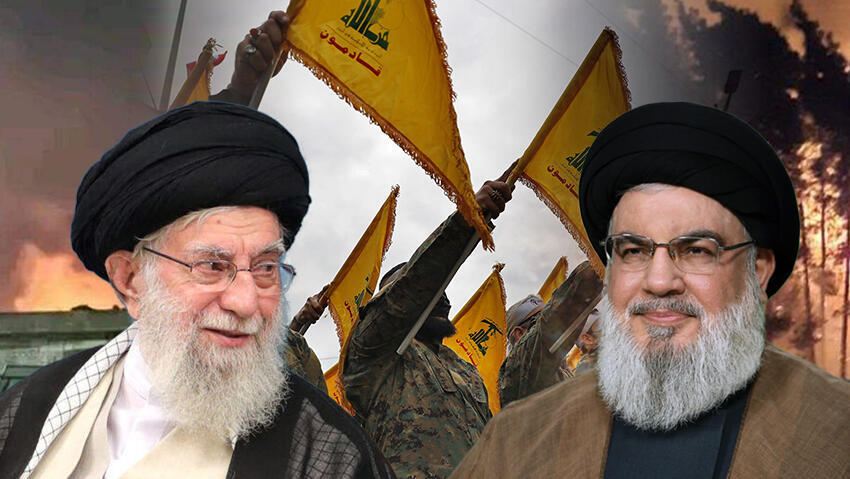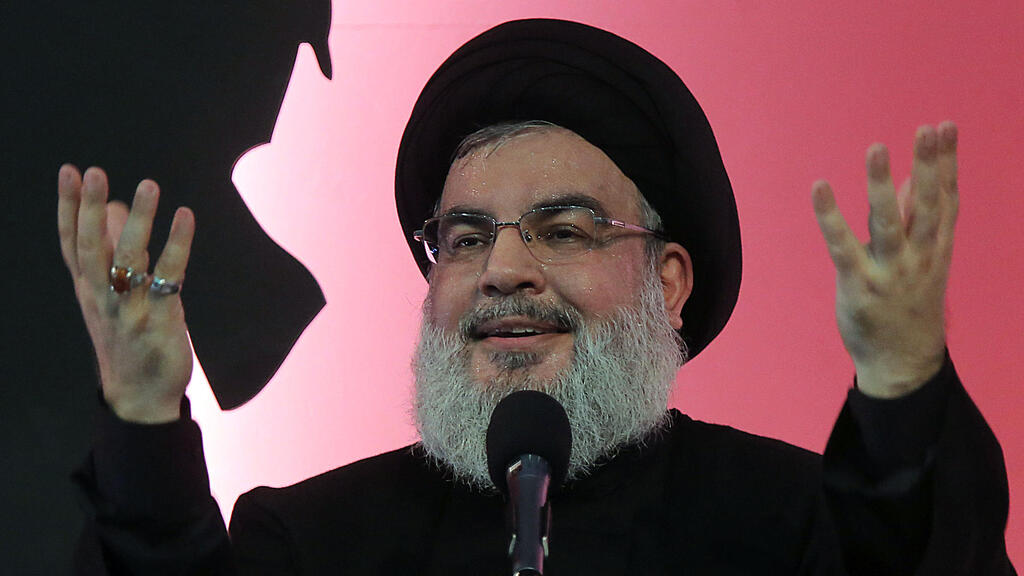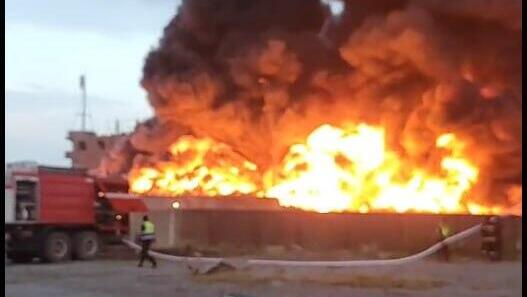Footage of strike against Hezbollah headquarters in Beirut
International reports have been covering Israel’s war since October 7, 2023, which also involved its conflict against Iran-backed Hezbollah on the northern border. Now, with Hezbollah leadership decimated and amid IDF entrance into Lebanon, the outlets are wondering whether Tehran's “axis of resistance” made up of its proxies across the Middle East is falling apart.
“Iran came up with the strategy and invested tremendous resources to build each group’s fighting abilities and connect them to one another,” a New York Times article on the topic published on Monday read.
“But the axis’ response as Israel has pummeled Hezbollah in Lebanon in recent weeks — killing many of its commanders and assassinating its leader — has so far been feeble, suggesting that the axis is weaker and more fragmented than many in the region had expected and that Iran feared that widening the war could cause Israel to turn its firepower on Tehran,” it added.
According to the American outlet: “The idea was simple: When a big war with Israel broke out, all the members of the Iranian-backed network of militias in the Middle East known as the ‘axis of resistance’ would join the fight in a coordinated push toward their shared goal of destroying the Jewish state.”
Hezbollah was a senior member of Iran’s axis, and the terror organization's Secretary-General Hassan Nasrallah, who was killed in an Israeli strike last week, was a leading figure. He had close ties to Iran and served as a "role model" for leaders of other pro-Iranian militias. According to the outlet, his assassination "badly shaken" the remaining members of the axis, who were likely unprepared for Hezbollah to suffer such significant losses.
At this point, the international community still hasn't fully understood why other members of Iran’s alliance didn’t aid Hezbollah in recent weeks. It appears that most of them believed the Shiite terror organization from Lebanon "could hold its own against Israel." Additionally, Iran's vague and unclear response following the strike has left doubts in other members of Tehran’s spiderweb.
4 View gallery


Scene of Israeli strike against Hezbollah headquarters in Beirut
(Photo: AP Photo/Hassan Ammar)
The New York Times reviewed the involvement of these militias and noted it took Syria two days to issue a statement on Nasrallah's death, despite Hezbollah sending thousands of terrorists to help them fight the country’s civil war which set off in 2011.
Hamas, after a year of fighting in Gaza, is incapable of doing much to help. Yemen’s Houthis and militias in Syria and Iraq launched attacks on Israel or U.S. bases in the Middle East, but most were thwarted. Two pro-Iranian militias’ commanders in Iraq said that they “had received no instructions from Iran on how to respond. Everyone was still in shock at Nasrallah’s killing.”
NBC also addressed the issue in an article titled "Is Iran's ‘axis of resistance’ collapsing under Israeli attacks?" In an extensive report on the activities of Iran's pro-Iranian militias, the outlet wrote that "Israeli airstrikes that wiped out Hezbollah’s top leadership and left its internal security in tatters are a devastating blow to Iran’s decades-long project."
This project, according to former U.S. intelligence officials who spoke with NBC, took decades to build and aimed to project power in the Middle East via Iran's proxy network.
Iran viewed Hezbollah as a cornerstone of its strategic plan to arm proxies in various regions across the Middle East. In addition to arming Hezbollah and terror groups in Gaza, militias in Iraq, Syria and Yemen were also armed, allowing Iran to one day attack Israel through its proxies and avoid direct confrontation.
According to former intelligence officials, however, Iran miscalculated Israel's response to the events and overestimated the strength of the proxy network it built — leading to its collapse.
According to NBC, Israel began targeting the Iran-backed Houthis after it dealt heavy blows to Hamas in Gaza and Hezbollah in Lebanon. This Iranian militia in Yemen had made numerous threats against Israel since the war began, attacked ships connected to Israel and launched missiles and drones toward Israeli territory. However, they were also hit twice in significant airstrikes by Israeli fighter jets in retaliation.
Meanwhile, as Iran's militias suffer consequent blows, Tehran shows no willingness or intent to intervene in the conflict directly. Although they frequently threaten Israel with a harsh response, they also stressed Hezbollah's capabilities, asserting the terror group can handle the situation alone.
"All the resistance forces in the region support and stand alongside Hezbollah," Iran's Supreme Leader Ali Khamenei said following the terror group chief’s death. " The fate of this region will be determined by the forces of resistance, with Hezbollah at the forefront."
According to former intelligence and defense officials, however, this decision could cost Tehran dearly as it raises questions among other militias about Iranian support when it’s needed. The New York Times reported on growing uncertainty surrounding Iran's response to Nasrallah's assassination, which represents the most severe blow Israel has delivered not only to the terror group but also to Iran's entire axis.
According to the report, there are disagreements within the Ayatollah regime on the nature of the response against Israel, with more extreme factions calling for a swift retaliation to "deter" Jerusalem, while more moderate elements, including Iran’s President Masoud Pezeshkian, advocate avoiding what they claim is an "Israeli trap."
First published: 10:20, 10.01.24







